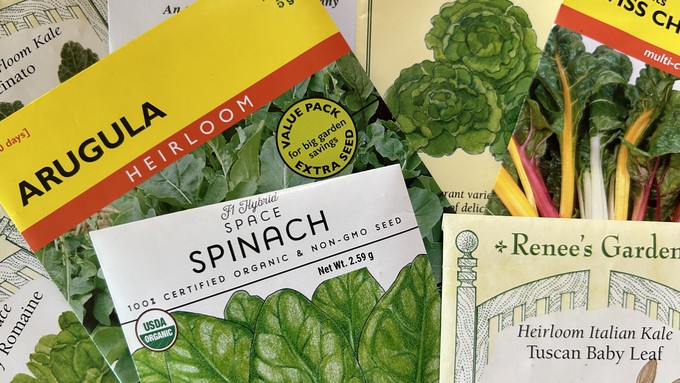
Master gardeners offer two free workshops on fall and winter vegetables

It's August, which means it's time to start seeds for many cool-season vegetables. Master gardener workshops on Aug. 12 and 19 will offer tips for success. Kathy Morrison
When our weather is at its hottest, it’s time to focus on cool – as in fall and winter vegetables.
Make the most of our year-round growing season with the help of the UC Cooperative Extension master gardeners with two free workshops – one in person and one via Zoom. (You don’t even need to leave the comfort of your air-conditioned home.)
At 10:30 a.m. Saturday, Aug. 12, the master gardeners of Placer County will host “Fall is the New Spring,” a one-hour in-person workshop at Loomis Library, 6050 Library Drive, Loomis.
“Plant cool-season veggies in July or August? REALLY???” posted the master gardeners in their course description. “Come and learn the importance of planting cool-season crops earlier than you ever thought – and why. Meet Persephone and hear her tale of woe.”
No pre-registration is required. Just show up with questions and a notepad.
Details and directions: https://pcmg.ucanr.edu/.
For a more in-depth look (and no driving), the master gardeners of El Dorado County present a three-hour online workshop on the following Saturday via Zoom. At 9 a.m. Aug. 19, the master gardeners will host “Fall and Winter Vegetables,” with plenty of tips for success.
“Would you like to continue to harvest luscious, home-grown vegetables even after the heat of summer subsides?” say the master gardeners. “If so, now is the time to plant for a fall and winter harvest. Learn how to grow a successful winter vegetable garden from UC Master Gardener Zack Dowell.”
Pre-registration is required for this workshop. Sign up in advance to receive the Zoom link. Look for the workshop under “Master Gardener Calendar.”
Details: https://mgeldorado.ucanr.edu/.
Comments
0 comments have been posted.Sacramento Digs Gardening to your inbox.
Sites We Like
Garden Checklist for week of April 21
This week there’s plenty to keep gardeners busy. With no rain in the immediate forecast, remember to irrigate any new transplants.
* Weed, weed, weed! Get them before they flower and go to seed.
* April is the last chance to plant citrus trees such as dwarf orange, lemon and kumquat. These trees also look good in landscaping and provide fresh fruit in winter.
* Smell orange blossoms? Feed citrus trees with a low dose of balanced fertilizer (such as 10-10-10) during bloom to help set fruit. Keep an eye out for ants.
* Apply slow-release fertilizer to the lawn.
* Thoroughly clean debris from the bottom of outdoor ponds or fountains.
* Spring brings a flush of rapid growth, and that means your garden is really hungry. Feed shrubs and trees with a slow-release fertilizer. Or mulch with a 1-inch layer of compost.
* Azaleas and camellias looking a little yellow? If leaves are turning yellow between the veins, give them a boost with chelated iron.
* Trim dead flowers but not leaves from spring-flowering bulbs such as daffodils and tulips. Those leaves gather energy to create next year's flowers. Also, give the bulbs a fertilizer boost after bloom.
* Pinch chrysanthemums back to 12 inches for fall flowers. Cut old stems to the ground.
* Mulch around plants to conserve moisture and control weeds.
* From seed, plant beans, beets, cantaloupes, carrots, corn, cucumbers, melons, radishes and squash.
* Plant onion sets.
* In the flower garden, plant seeds for asters, cosmos, celosia, marigolds, salvia, sunflowers and zinnias.
* Transplant petunias, zinnias, geraniums and other summer bloomers.
* Plant perennials and dahlia tubers for summer bloom.
* Mid to late April is about the last chance to plant summer bulbs, such as gladiolus and tuberous begonias.
* Transplant lettuce seedlings. Choose varieties that mature quickly such as loose leaf.